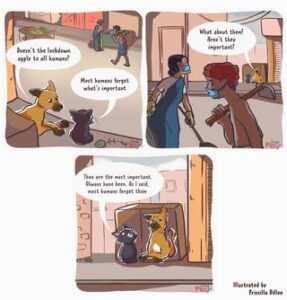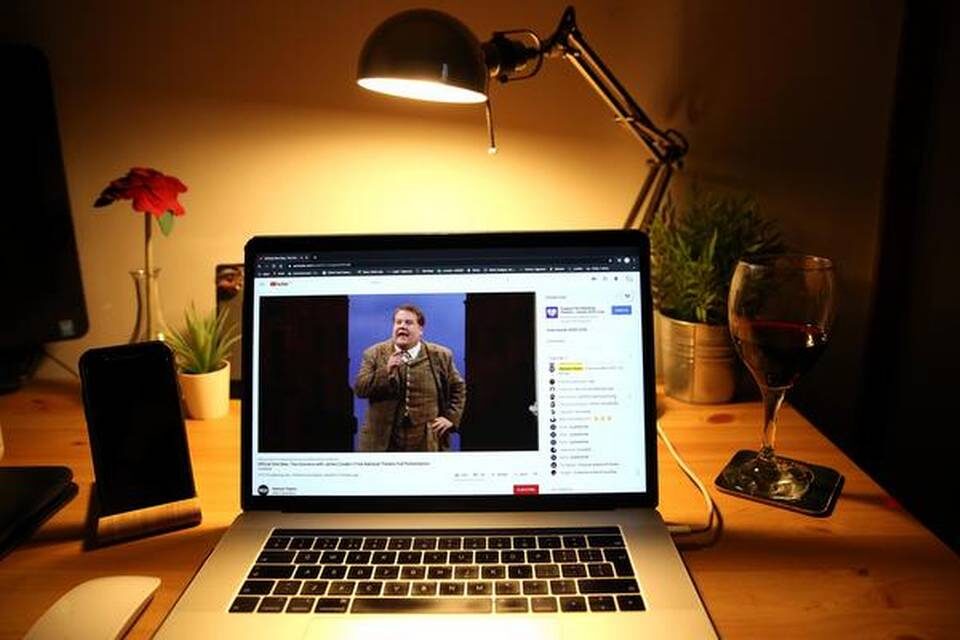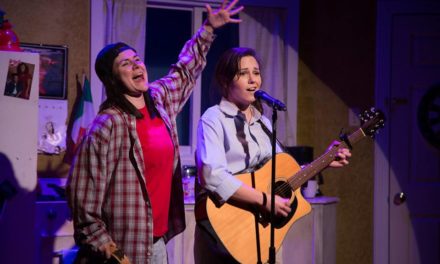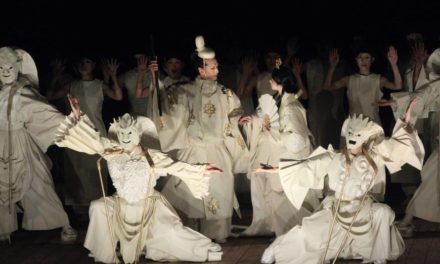From play-readings and performances on Facebook live to apps that access playscripts, the online space is giving theatre lovers in the city the much-needed antidote to these grim days.
Who would want to miss Andrew Scott, with his impeccable British accent and sculpted looks, as Shakespeare’s tragic hero, Hamlet, performing what can be considered one of the most iconic soliloquies of all time? “To be or not to be… that is the question,” the actor begins. For theatre enthusiasts sitting many miles away, it is not often that we get to be audiences to Broadway and West End productions or those of the Globe Theatre. But, with the COVID-19 pandemic affecting the cultural intake and contribution of the city and largely the world, the digital space is throwing suggestions and opportunities left, right and center.
Although nothing can equal the experience that a staged performance with hundreds packed in an auditorium, gives, it is imperative to adapt to the circumstances that surround us. Actors, directors, and technicians across the world that make the medium of theatre thrive, have decided to take this challenge head-on. The fact that social and physical interaction are key components of the genre is what makes this challenging. The age of IGTV and Facebook live have changed the format altogether: what was once used to provide sneak-peeks into the lives of celebrities has now become a global stage for performing artistes to cater to their social distancing connoisseurs, every evening.
Though we do not yet have anything even remotely close to the New York-based 24 Hours play format — where homebound screenwriters and directors are commissioned to devise a play featuring homebound actors within the span of 24 hours — some Chennai-based theatre enthusiasts are seeing this as an opportunity to turn things around. CreaShakti, a group that focusses mostly on theatre and education, has been devising a way to keep its little audiences entertained. With the help of its in-house illustrator, Priscilla Dillen, it has been putting out comic strips (one panel a day) on its social media handles, titled The Adventures of Pandi and Meenakshi.

A panel from The Adventures of Pandi and Meenakshi | Photo Credit: Special Arrangement.
“Pandi is a street dog and Meenakshi is a street cat, and they are characters from one of the plays that we devised. We wanted to look at the entire lockdown experience through their eyes,” Dushayanth Gunasekharan of CreaShakti explains, adding, “We are anyway inching towards the time when summer camps usually take place. So, we were also planning to launch something called The Junior Playwright’s Club where children can access playscripts from our app, CreaPlay.” In the app, the content of which has been in curation for the past few years, children can view playscripts published by CreaShakti’s publishing wing, read them and watch videographed performances of the plays. Until the lockdown is relaxed, CreaPlay is free to access, adds Dushyanth. There is more than four hours of content in the app that a child can access. In addition to this, they have also been conducting online writing and role play classes for which 300 children and adults are currently engaging.

Commenting on the situation of migrant workers | Photo Credit: Special Arrangement.
On a lighter note, in an effort to keep its in-house actors and other enthusiasts in tune with the genre, Theatre Nisha has been having play reading sessions via Zoom every evening. When the lockdown was declared, the ensemble had been rehearsing Girish Karnad’s Crossing to Talikota, slated for performance by the end of April. “For us, the biggest change has been that we are no longer able to train or conduct workshops, which are integral to theatre education. So, now we get together every evening to discuss the directorial, design, technical and writing aspect of a play that we choose,” says Balakrishnan V of Theatre Nisha.
The plays being discussed are from Balakrishnan’s collection of Indian and Western plays. “New writing is what we are focusing on right now. We read Nine Parts of Desire, Bachelorette and so on and hope to continue doing these sessions,” says Balakrishnan. When asked if Theatre Nisha will also mark its digital presence by conducting classes and workshops online, Balakrishnan says, “I am a little skeptical about that. Already, the Internet is flooded with many options. Moreover, I don’t know how many of us are actually venturing out beyond Netflix and soaking up some opera and classical theatre,” he concludes.
This article was originally posted at The Hindu on April 3rd, 2020 and has been reposted with permission. To read the original article, click here.
This post was written by the author in their personal capacity.The opinions expressed in this article are the author’s own and do not reflect the view of The Theatre Times, their staff or collaborators.
This post was written by Gowri S.
The views expressed here belong to the author and do not necessarily reflect our views and opinions.


















